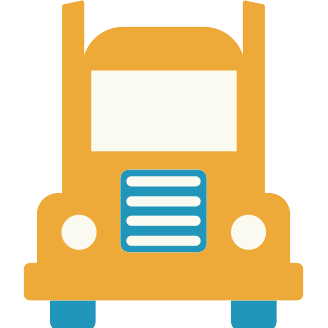
Transportation
The NWMO will:
- Demonstrate the potential for a socially acceptable transportation plan through dialogue on the transportation planning framework;
- Continue to work with Indigenous peoples to understand how the NWMO can align our transportation planning with Indigenous Knowledge;
- Continue refinement of the Used Fuel Transportation System; and
- Begin implementing the transportation planning framework, which will be updated every three years.
Transportation of used nuclear fuel occurs on a daily basis worldwide. In almost 60 years, there has never been an accident resulting in human or environmental harm as a result of radioactive release in Canada.
The NWMO is developing safe, secure and socially acceptable plans for transporting used nuclear fuel from the current interim storage sites to the deep geological repository. However, we recognize the need to explain this good safety track record and answer peoples’ questions about how the NWMO will uphold this standard.
For example, in 2023, the NWMO initiated studies to update the Preliminary transportation plan, first published in 2021. Transportation planning and evaluations over the 2024-28 period will fully address regulatory requirements for safely transporting used nuclear fuel through different provinces.
As part of the site selection process, an acceptable transportation route must have the potential to be developed. The NWMO continues to conduct technical assessments to help define potential routes.
Once a site is selected, more detailed technical and social engagement planning activities will begin. We plan to start transporting used fuel to the deep geological repository site in the 2040s, once the repository is operational.
In addition to the technical requirements, social considerations are important to our planning process. We understand that the transportation of used nuclear fuel is an important topic to Canadians and Indigenous peoples, and we are taking a collaborative approach that includes shared decision-making. More specifically, we have designed an iterative approach to transportation planning that will incorporate future generations’ inputs into the planning process, acknowledging the importance of considering seven generations in Indigenous worldview.
As identified earlier, it is our responsibility to ensure that people with a broad range of interests are included in our planning discussions and that we address their questions and concerns, as practicable. We have heard concerns around transportation safety, transportation package performance and emergency framework. The NWMO is working to address these concerns through continued engagement activities and considering this feedback in development of the Used Fuel Transportation System design.
In the period from 2024 to 2028, the NWMO will also:
- Continue transportation planning that is reflective of citizens’ values, principles and objectives, including an emphasis on safety from a social perspective;
- Undertake transportation logistics studies and operational assessments;
- Seek from the Canadian Nuclear Safety Commission design approval certificates for road and rail transport packages as appropriate;
- Research and establish key requirements for emergency management and transportation security for future planning purposes;
- Continue to expand engagement to include municipalities and Indigenous communities along potential transportation routes, as well as interested individuals and groups; and
- Brief Canada’s nuclear host communities about our progress, including planning for eventual transportation of used nuclear fuel from their communities to the deep geological repository.
